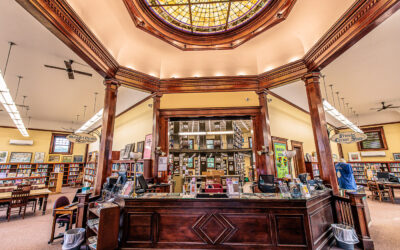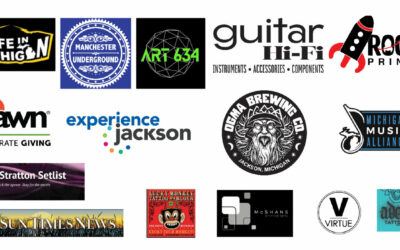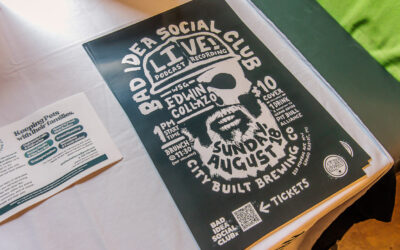The Chelsea Area Chamber of Commerce’s Curling Fest 2018 (February 16-18, 2018) featured a tournament for both experienced and novice competitors on Saturday and Sunday and learn to curl sessions on Friday.
Curling Fest 2018
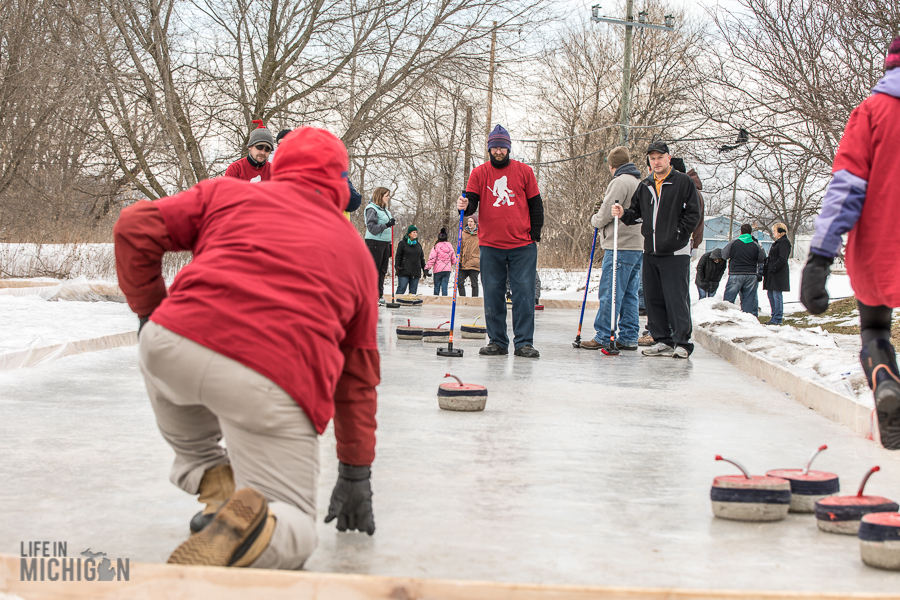
Terris Ahrens, an Ambassador for the Chelsea Area Chamber sent us an invite via Facebook to the event way back in December.
The invitation was intriguing. We quietly discussed the possibility of registering for a team. All the team spots were snatched before we pulled the trigger. The invite said “Spectators are welcome to come and watch the bonspiel (term for curling tournament) free of charge and enjoy music, beer, food, hot cocoa, and more in a heated tent.”
Curling is one of those “Things” you think you understand, but when you attempt to share your vast knowledge you realize you really don’t know much. It is like shuffleboard, but they use brooms. Ice is involved. A stone slides across the ice to a circle. Hopefully the stone makes it to the circle and stays there.
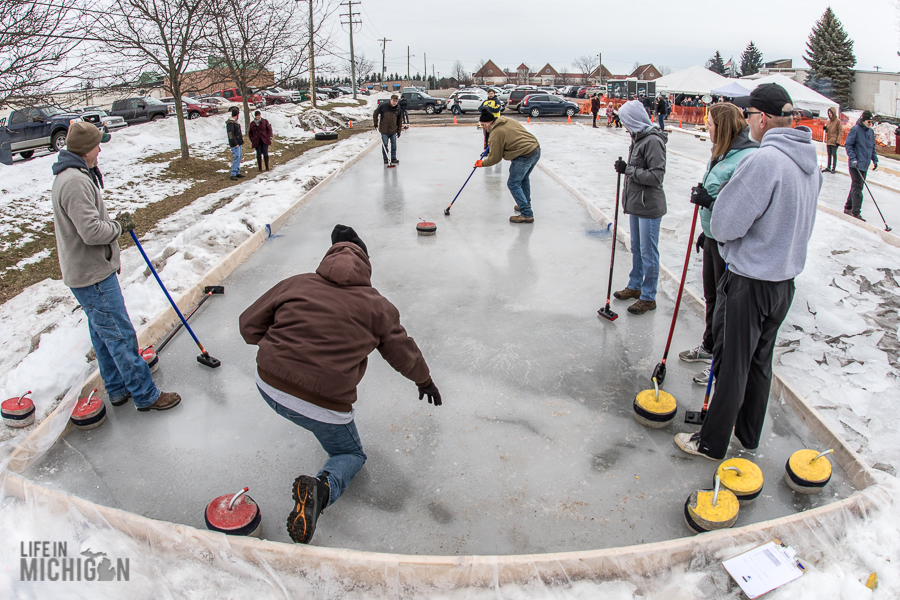
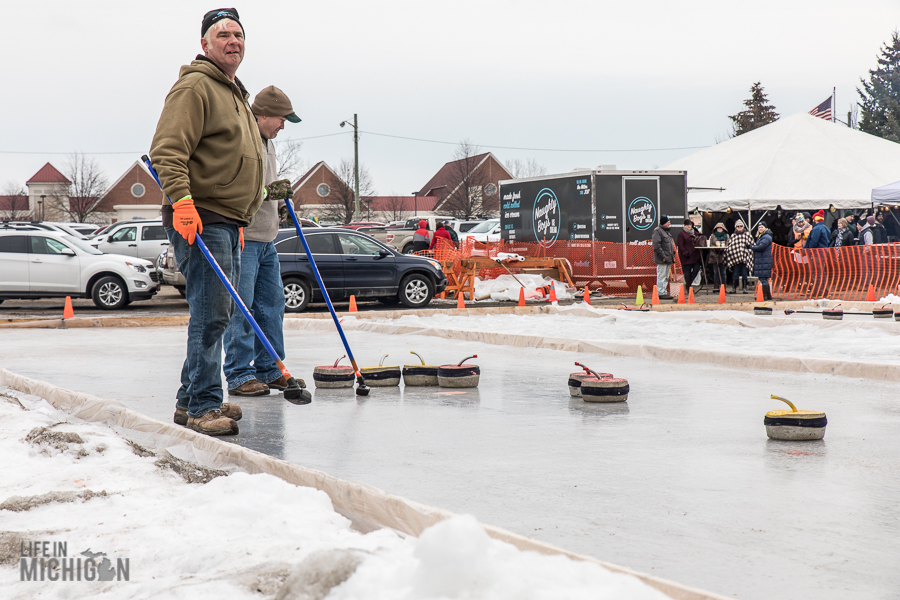

We’ve got more pictures in the gallery.
Curling Stones
Terris mentioned the stones are expensive. Again, something I didn’t know. According to the “Curling Stone” website:
A curling stone, the puck used in curling, is made of granite, but it is not just any granite – it is blue hone granite that can be found only off the coast of Scotland on an island known as Alisa Craig.
This granite is usually in shades of red and brown as well as blue and gray, and is called Trefor. These stones sell for about $600 when new. Blue hone granite stones are used by elite teams, and these stones can cost around $30,000 for the team’s stones.
You learn something every day!
DIY Curling Stones
I had no idea making your own curling stones was a thing. The ingenious Chelsea Chamber members made their own curling stones for the Curling Fest 2018.
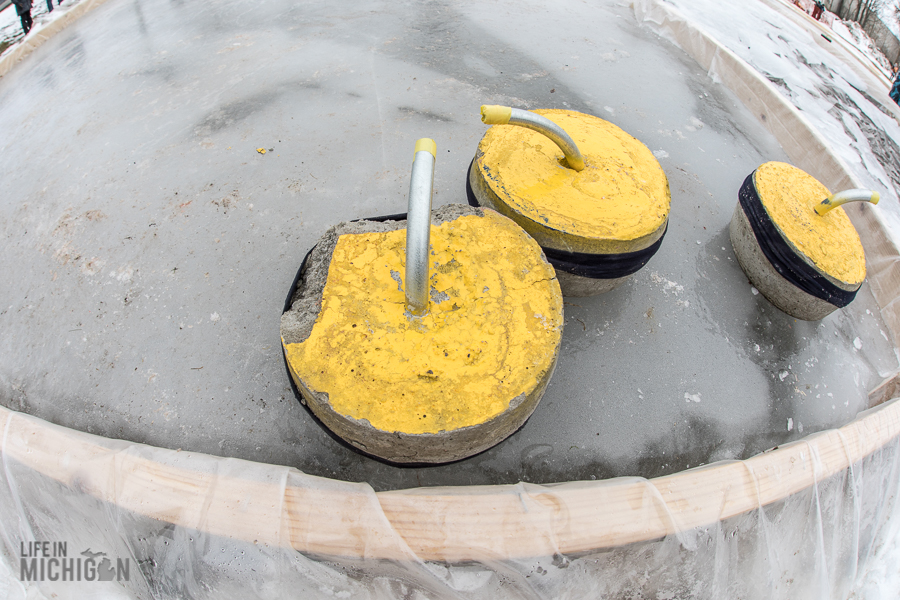
A quick google search provided Canadian website called “Brojects” with instructions and a video.
Scottish Origins
According to Wikipedia, Curling has Scottish origins.
Curling is “one the world’s oldest team sports, curling originated in the 16th century in Scotland, where games were played during winter on frozen ponds and lochs. The earliest-known curling stones came from the Scottish regions of Stirling and Perth and date from 1511.”
Next Year
If you missed the event, no worries Terris mentioned plans for Curling Fest 2019. Do you want to stay in the know about Chelsea’s events? The Chelsea Area Chamber of Commerce has a Facebook Page and Chelsea has a handy website listing events and local resources.
Thank You for Your Support
Would you like our top 12 hidden gems of Michigan? Become a Patron! Patronage from people like you who enjoy our stories is what keeps Life in Michigan going strong. If you have the means, consider showing your support on our Patreon Page.
Share the News
We hope you enjoyed our Curling Experience. If you enjoyed the story, then share it on your favorite social media venue or send it as a link to your friends and family. This is good for everyone!
Stay Connected
We’d really love it if you’d like our Facebook page. When you subscribe to our newsletter, our posts are delivered directly to your email box. You can also find us on Instagram. Cheer!

